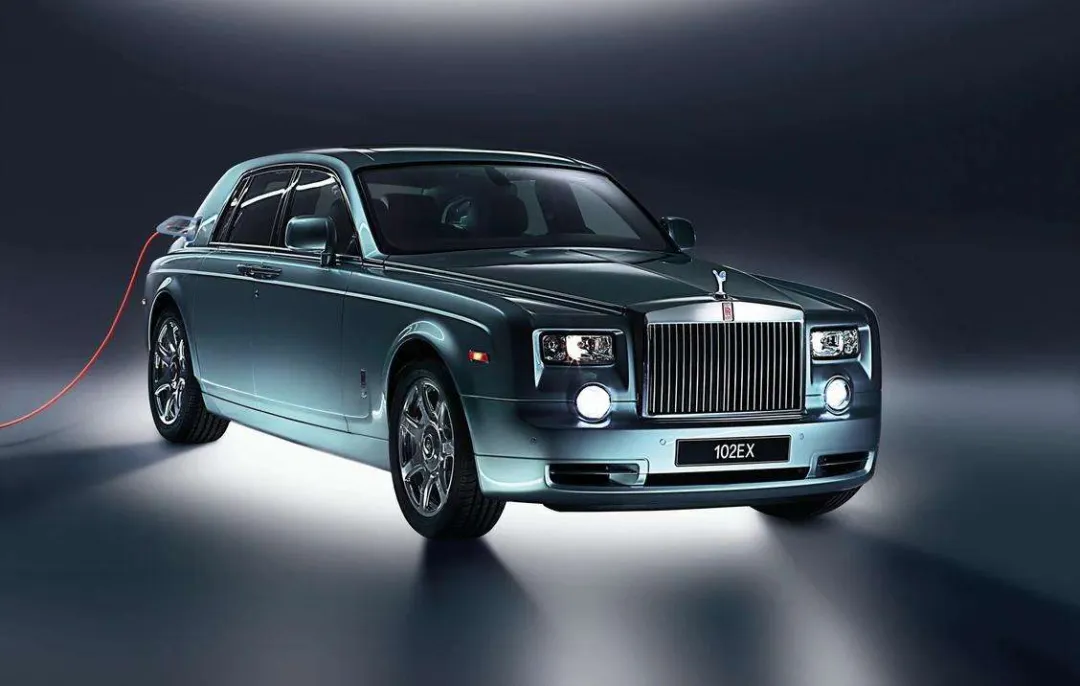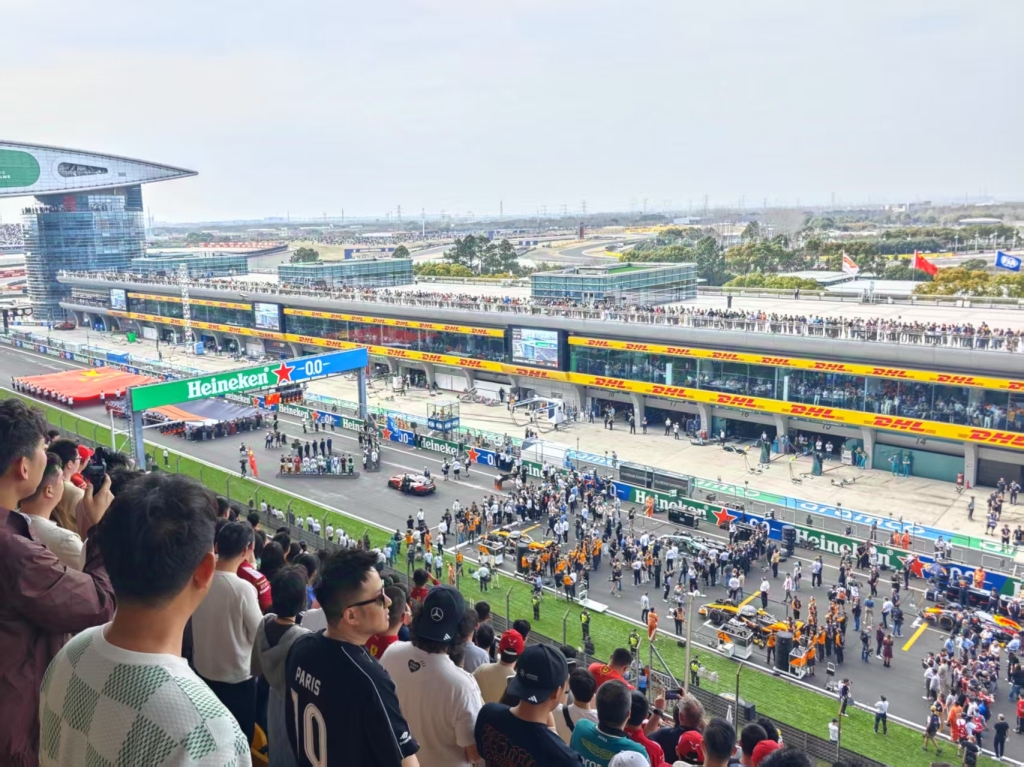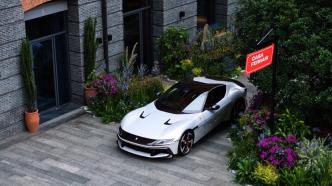
Have you ever said, "I would never do that!" and then did it anyway, only to face the consequences of those words? If so, you're not alone. And for that matter, you're not alone among automakers.
For example, British supercar maker McLaren said for years that it would never join every other automaker in the SUV craze because it was founded as a motorsports company. But a change in ownership ultimately reversed that, forcing the storied brand into areas it had never ventured into before.
Since they don’t have X-ray vision, automakers usually use a combination of consumer trends, regulations, best-selling products, and a bit of gut feeling to predict future product trends. Sometimes this works really well, but sometimes it doesn’t — here are some examples of automakers confidently making future product predictions, only to completely change their minds later.
Rolls-Royce: 'We will never sell an electric car'

↓2011 Rolls-Royce 102EX Image source: Rolls-Royce
To its credit, British automaker Rolls-Royce did its homework before deciding to build an electric car. Starting in 2004, it built a series of experimental cars called "EX" to test new technologies and see how consumers would react to them. Some of these cars did eventually become production models, like the 200EX that became the Phantom.
The first model to feature a fully electric powertrain was the 102EX, launched in 2011. It was based on the Phantom and was designed to see if wealthy Rolls-Royce customers would be willing to install charging equipment on their cars. A year later, the company said it was reluctant to do so, mainly due to concerns about charging infrastructure (it seems that some things never change), and that it had no plans to launch a Rolls-Royce with a power cord.
But buyers will be more than happy to charge the new all-electric Spectre model, which arrives in 2023. Rolls-Royce also said it would never offer a hybrid model, and so far it's sticking to that stance.
Ferrari: "You'll have to kill me before you build an SUV"

2024 Ferrari Purosangue Image credit: FERRARI
Yes, late Fiat CEO Sergio Marchionne seemed to say exactly that in 2016, when he was head of Ferrari and was asked if the supercar company would consider an SUV. Ferrari's chief designer added that Enzo Ferrari would "gasp" if he saw the company make a four-door model. The company did have a four-seater, the Ferrari FF, but it didn't have doors next to the rear seats.
But with every other brand jumping on the SUV bandwagon—including Ferrari's arch-rival Lamborghini, Bentley, Rolls-Royce, Maserati, Porsche, Jaguar, and more—and seeing them soar up the sales charts, it's hard to sit back and watch.
Marchionne then said: "Ferrari is a business... what the heck, let's do (an SUV) too." Sadly he didn't live to see the car come out, but the result was the Ferrari Purosangue. As expected, the company's CEO reportedly said: "Please don't call it an SUV... it's a Ferrari."
Cadillac: "This is the last convertible we'll ever make"

1976 Cadillac Eldorado Convertible Photo credit: GENERAL MOTORS
Convertibles have always been a staple of the automotive world, but by the 1970s they were in trouble. More models were equipped with air conditioning; soft tops made it easier for drivers to open the doors; and the U.S. government said it planned to increase regulations on rollover safety, which convertibles could not meet.
Every American car brand stopped making the Eldorado convertible, leaving only Cadillac to continue. In 1976, Cadillac advertised the 14,000 Eldorado convertibles it produced as "the last of the convertibles," and the last 200 special editions were snapped up by collectors, some of whom were willing to pay nearly double the asking price of $11,049 for the chance to own one.
There was no convertible in the U.S. for some time after that, but in 1982, Chrysler sent some LeBaron coupes to a Michigan tuning company, which converted them into soft-top convertibles, which were quickly snapped up by buyers.
Cadillac soon changed its mind and introduced the all-new Eldorado Biarritz convertible for 1984. This prompted many buyers of the "last convertible" to sue Cadillac because their convertible collections had lost value, but their lawsuit was ultimately dismissed by the court.
Ford: Customers 'should never be forced to buy' a new car again

Henry Ford with a 1921 Model T Image credit: FORD
These words come from Henry Ford, who believed it was unethical for automakers to update models to “make the old ones obsolete” and make people want the newer ones. He introduced the Model T in 1908, but in 1909 he stopped production of the other four models, and then produced only the Model T for 18 years.
During this time, this single car model effectively converted the United States and Canada from horses to cars. He made some changes to the Model T that he thought would improve its performance and lower its price, but never made a comprehensive overhaul. His theory was that this simple, inexpensive car was the only car anyone would ever need and want.
But his company was not without competition, and as other companies introduced more advanced models, consumers took notice. Although reluctant, Ford eventually realized that the era of his beloved automobile was over.
Oddly enough, in May 1927, he suddenly stopped production and closed the factory without replacing it with a new product. This left his employees without jobs and put his dealers in a very difficult situation. Then, in record time, his company launched the all-new and highly successful Model A, which debuted on December 2, 1927, officially declaring the Model T obsolete.
Dodge: The "Durango SRT Hellcat" will only be produced for one year

2023 Dodge Durango SRT Hellcat Image credit: STELLANTIS
Dodge is known for launching "super cool" cars, and it's hard to imagine a car that's more outrageous than the 2021 Durango SRT Hellcat. It's equipped with a reinforced 6.2-liter V8 engine that can output 530 kW of power and 875 Nm of torque.
If you buy one of the 2,000 limited-edition vehicles, you'll also get a full day of professional driving lessons at the Bondurant High Performance Driving School in Arizona. At the time of its release, Dodge promised, "The Durango SRT Hellcat will be produced only for the 2021 model year." Admittedly, the vehicles sold out quickly, with most buyers paying well above sticker price.
Everything was quiet in 2022, but in 2023, Dodge made another announcement: "In response to the needs of performance car enthusiasts, the Dodge Durango SRT Hellcat is reborn again after being launched once before as a single-year model." That's right, it's back, and except for a few optional configurations, everything else is unchanged; and it has been included in the Dodge product lineup ever since, and a special edition model will be launched in 2025.
Just like Cadillac's "last convertible" incident, some consumers paid a high price for a "one-year-only" high-performance model, only to find out it wasn't produced for one year. These consumers sued Dodge, but the lawsuit is still pending in court, and we'll have to wait and see if it's "time" for the automaker to do another "U-turn."
(The original title is "Which car companies made promises and then went back on their word")

